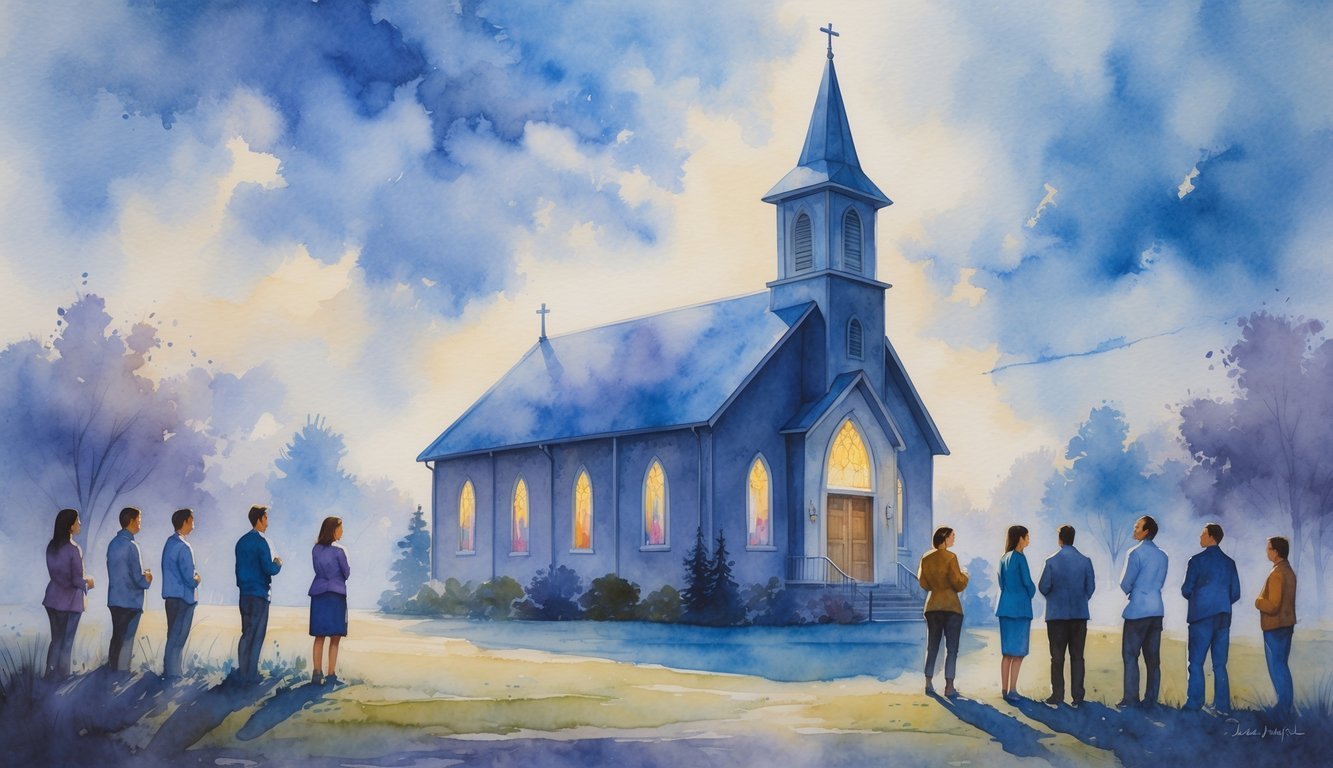PsychNewsDaily Publishers
100 Summit Drive
Burlington, MA, 01803
Telephone: (320) 349-2484
PsychNewsDaily Publishers
100 Summit Drive
Burlington, MA, 01803
Telephone: (320) 349-2484
Doubt is a common experience among Christians, often arising from feelings of isolation, unanswered prayers, moral conflicts, and comparisons with others' faith journeys.

A lot of Christians wrestle with doubt at some point in their faith journey. You might catch yourself wondering why doubt creeps in, even when you want to believe with all your heart.
Honestly, it’s pretty common—and it can show up for reasons you wouldn’t always expect.
If you can understand what’s fueling your doubt, you’ll probably face it with more confidence and clarity. Doubt doesn’t always mean your faith is weak; sometimes, it’s just part of growing deeper. Let’s dig into some surprising reasons Christians feel uncertain.

When you start doubting your faith, it can feel like you’re the only one struggling. That sense of loneliness hits hard.
But honestly, doubt is everywhere among Christians. So many people wrestle with questions about God at some point.
If you know others experience doubt too, maybe you’ll feel a little less alone. It’s totally normal, even if it doesn’t always feel that way.

If you think doubt proves your faith is weak, you’re definitely not alone in that. A lot of people assume real faith means never questioning or feeling shaky.
But actually, doubt can show your faith is alive. Wrestling with questions doesn’t mean you don’t believe—it might mean you care enough to go deeper.
Even some of the most faithful people in the Bible doubted. Your struggle might be a sign your faith is growing, not crumbling.

When you pray and nothing seems to happen, it’s tough not to wonder if God’s even listening. That confusion or disappointment can sting.
You want clear answers, but sometimes God feels silent. Maybe it’s not rejection—maybe it’s an invitation to trust Him more.
Unanswered prayers hurt, but they don’t mean God stopped caring. Sometimes, they even help you grow and lean on His timing.

Maybe you wonder if the Bible you read now is really what was written long ago. Some folks worry the texts got changed or copied wrong over the centuries.
It’s normal to ask if the stories, especially about Jesus, are accurate. Those doubts can shake your faith for a while.
Plenty of scholars actually say the Bible holds up better than other ancient books. Still, it’s okay to dig for answers and look into its history yourself.

Real life sometimes tests your sense of right and wrong. When that happens, your faith can feel shaky.
What you see or hear out in the world doesn’t always line up with what you believe. That tension can be rough.
It’s normal to wonder how to act when your morals and reality clash. Wrestling with these things can stretch your faith—even if it’s uncomfortable.

You might doubt yourself because you keep comparing your faith to someone else’s. Seeing others seem so strong can make you feel weak.
But faith isn’t a contest. Everyone grows at their own pace.
If you focus too much on others, you’ll just get discouraged. Try to notice your own steps, even the small ones, without measuring yourself against someone else.

You might worry about what people at church will think if you admit your doubts. That fear of judgment can make you hide your struggles.
Sometimes, there’s pressure to look perfect in your faith. That makes doubt feel shameful or even wrong.
But honestly, lots of people feel that way. If you share honestly, you might actually find support and get stronger.

Doubt can pop up in so many ways for Christians. Sometimes you ask healthy questions that help your faith grow. Other times, doubt just sticks around and shakes you up.
History shows doubt isn’t new. It’s been part of the Christian story for centuries.
Healthy questions come naturally and can be really helpful. When you ask why something matters or want to know God better, it can deepen your faith.
These questions mean you’re engaged and open to learning. That’s a good thing.
Persistent doubt, though, feels heavy. It can leave you unsure about God’s love, your salvation, or even if God’s real.
That kind of doubt brings worry or fear. It might make your faith feel unsteady for a while.
Here’s a quick way to look at it:
| Type of Doubt | What It Feels Like | What It Can Lead To |
|---|---|---|
| Healthy Questions | Curiosity, growth | Stronger, deeper faith |
| Persistent Doubt | Confusion, fear | Faith struggles or crisis |
Doubt has been part of faith for a long time. Even people in the Bible struggled with it.
John the Baptist, for example, doubted while he was in prison. He questioned if Jesus was really the Messiah.
That shows doubt isn’t a sin or some big failure. It’s often just part of the journey.
Christian leaders and thinkers have written about wrestling with doubt for ages. They remind us that doubt, when faced honestly, can lead to stronger trust.
Knowing this, maybe you’ll feel less alone when doubt hits. You’re part of a long line of believers working through tough questions.

A lot of churches try to create safe spaces where you can talk about doubts without feeling judged. They offer groups and tools to help you work through questions with others who get it.
You need a spot where you can be real about your doubts and not worry about what people think. Some churches set up small groups or discussion nights that focus on the tough parts of faith.
These conversations show doubt is normal and part of growing. They help build a culture where questions aren’t scary.
When leaders admit their own doubts, it makes everything feel more honest. Hearing others’ stories can build trust and encourage you to keep searching for answers.
You don’t have to face your doubts alone. Plenty of churches actually offer counseling, mentoring, or even special classes that try to help you navigate uncertainty.
You’ll find resources like books and online materials that give honest, straightforward information. These can help you learn at your own speed, with no pressure.
Counselors and mentors usually listen closely and try to offer support that fits your situation. They’ll walk with you as you explore your faith, however long it takes.
Sometimes, just being in a community you trust makes a difference. You get encouragement while you wrestle with tough questions.